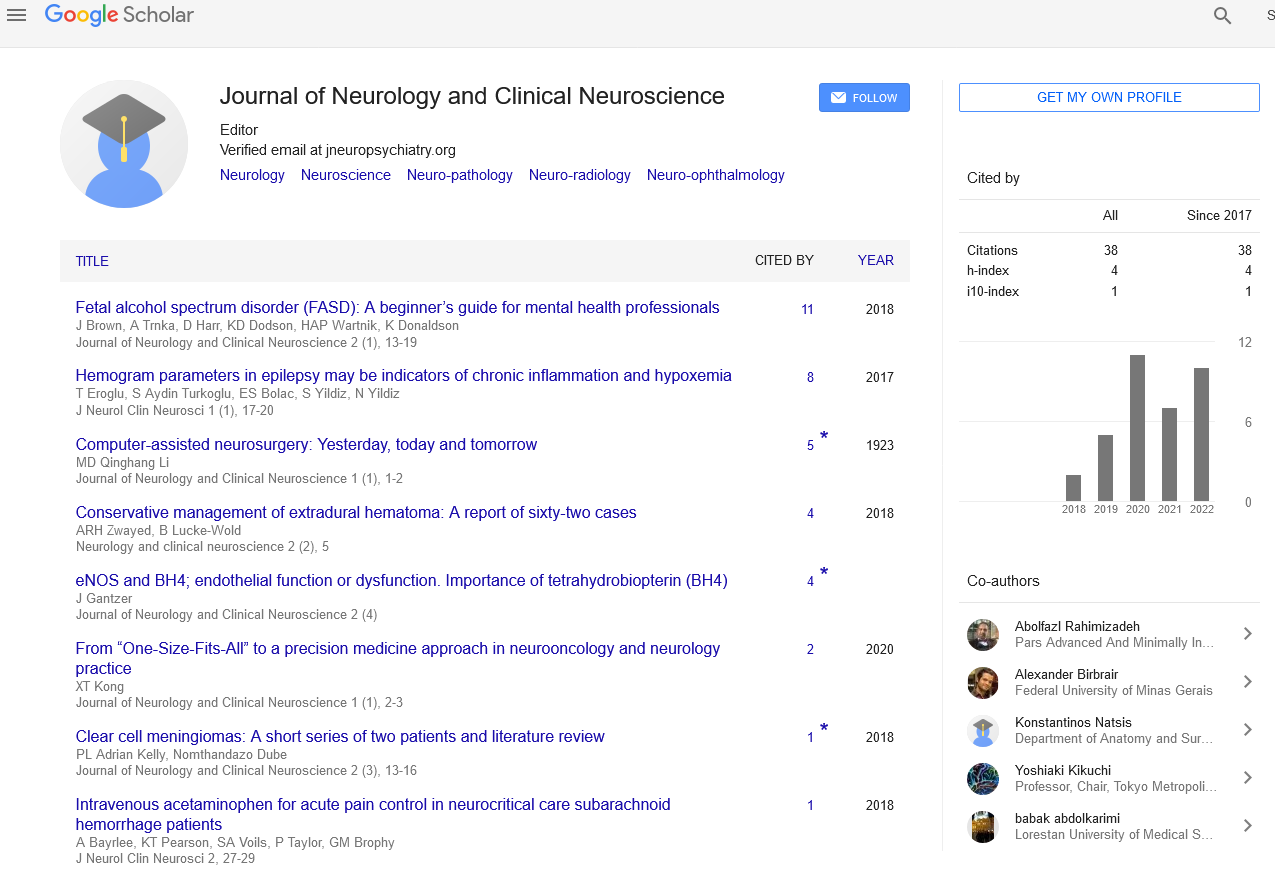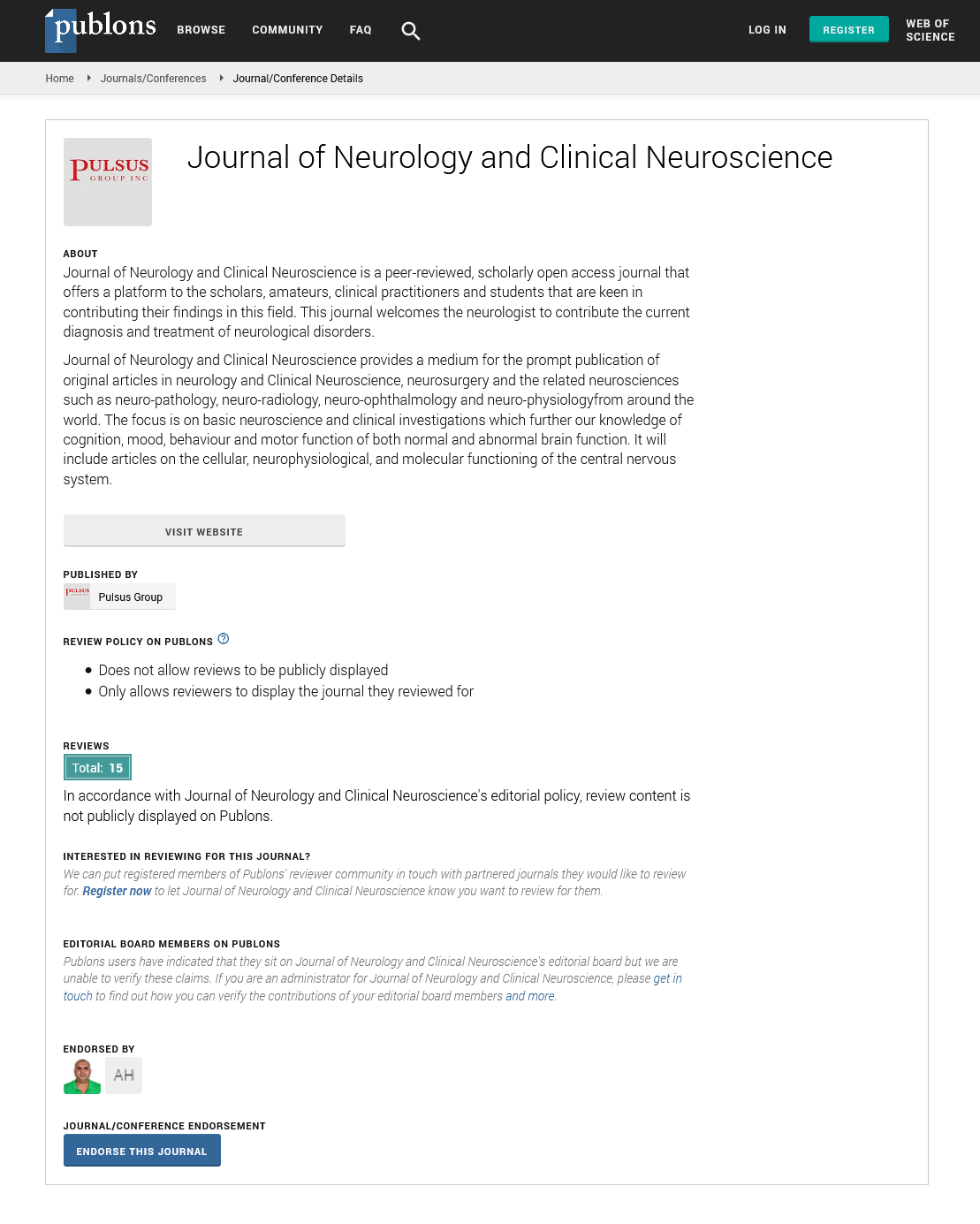Sign up for email alert when new content gets added: Sign up
Neuropsychosocial impact of forced displacement in Kashmiri migrants: Implications and mitigation strategies
8th World Congress on NEUROLOGY AND THERAPEUTICS
June 29-30, 2023 | London, UK
Seema Vinayak, Simran Jyani, Rohin Vinayak, Mehul
Professor, Department of Psychology, Panjab University, Chandigarh, India Junior Research Fellow, Department of Psychology, Panjab University, Chandigarh, India Clinical Fellow, Bedford Hospital, Bedford, UK Clinical Fellow, Hereford County Hospital, Hereford, UK
ScientificTracks Abstracts: J Neurol Clin Neurosci
Abstract :
Statement of Problem: Terror-induced mass displacement from one’s native place can have lingering, long-term neuropsychosocial consequences. Conflict-induced migration occurred in the Kashmir valley (Jammu and Kashmir, India) in the year 1990 when thousands of Kashmiri Pandits’ families, faced with a wave of targeted assassinations of community leaders and threats by terror outfits, left their homes for centuries- all within a fortnight. They relocated to different parts of India to pick up the lost threads. Most settled in Jammu, in significant numbers in four camps on the outskirts of Jammu City and non-camp migrant communities, where they began working and supporting their families. Present study examined the impact of social support on depression, anxiety, and stress among Kashmiri migrants. Methodology and theoretical orientation: Individuals differ significantly in their time and efforts to prepare for their migration and their underlying desire to leave their homeland, whether freely or forcibly. People who get social support believe they are loved, cared for, honoured, and valuable members of a social network, such as a family or community organisation, which may provide commodities, services, and mutual defence in times of need or danger. Rani & Vinayak (2012) found that people high on social support scored low on anxiety. One hundred and forty (140) migrants from Jammu & Kashmir (India) were administered scales of social support, depression, anxiety, and stress. Findings: Results from the descriptive analysis, regression analysis, and t-test revealed that 16.4% of the respondents reported depression, 21.4% had anxiety and 4.3% reported stress. Significant gender differences were found in depression. However, depression, anxiety, and stress experienced by Kashmiri migrants were not affected by social support. Conclusion and significance: Present investigation emphasises the need to focus on the neuropsychological state of social support providers and arrange regular counselling sessions for migrants to deal with their neuro-psychological issues. References 1. Adebayo, B., Nichols, P., Albrecht, M.A., Brijnath, B., & Heslop, K. (2021). Investigating the Impacts of Acculturation Stress on Migrant Care Workers in Australian Residential Aged Care Facilities. Journal of Transcultural Nursing, 32(4), 389-398. doi:10.1177/1043659620947810 2. Alegría, M., Álvarez, K. & DiMarzio, K. (2017). Immigration and Mental Health. Current Epidemiology Reports, 4, 145–155. https://doi. org/10.1007/s40471-017-0111-2
Biography :
With a professional standing of 30 years in academics and research, Dr Seema Vinayak is a professor of psychology at Panjab University, Chandigarh. Cognition, clinical psychology, stress, anxiety, and therapeutic interventions are the core areas of expertise. She has supervised over two dozen doctoral theses and published more than three dozen research papers/chapters in national and international journals/books. She has attended several conferences, in India and abroad, and is on the editorial board of several national and international journals. As a subject specialist, she has been on high-level selection panels of government and private organizations.





